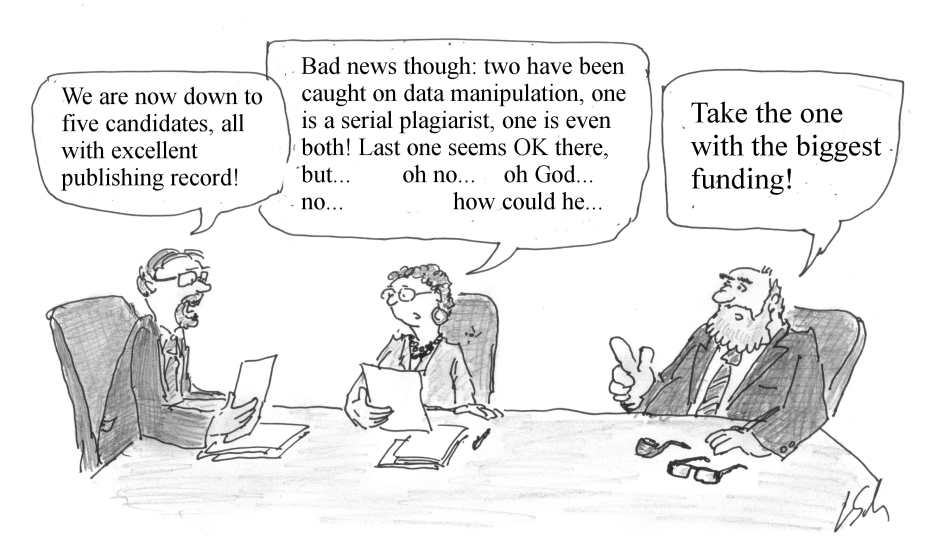 |
| Cartoon by Johan Thyberg from "For Better Science" |
The questions it raises have particular relevance in the stem cell field, which is still very much in a formative stage.
Aaron Carroll, a professor of pediatrics at the University of Indiana, produced the opinion piece for the Times. He wrote,
"How might grant funding and career advancement — even the potential for fame — be biasing researchers? How might the desire to protect reputations affect the willingness to accept new information that reverses prior findings?"
He also said,
"Moves toward open science, and for a change in the academic environment that currently incentivizes secrecy and the hoarding of data, are perhaps our best chance to improve research reproducibility Recent studies have found that an alarmingly high share of experiments that have been rerun have not produced results in line with the original research."
Questions arise with some regularity about hype and fraud in stem cell research. Back in 2014, bioethicist Art Caplan asked, “Why so Much Fake, Unduplicable Stem Cell Research?”
Just this past fall, a multimillion-dollar stem cell research scandal involving Harvard surfaced once again in the news.
Credibility, of course, is everything in science. For the California stem cell agency, it is a matter of survival. It will be out of cash for new awards in less than 12 months and is hoping voters will then give it an additional $5 billion. More news about stem cell hanky panky, wherever it occurs, will not serve the agency well when it makes its pitch once again to the people of the Golden State.
No comments:
Post a Comment